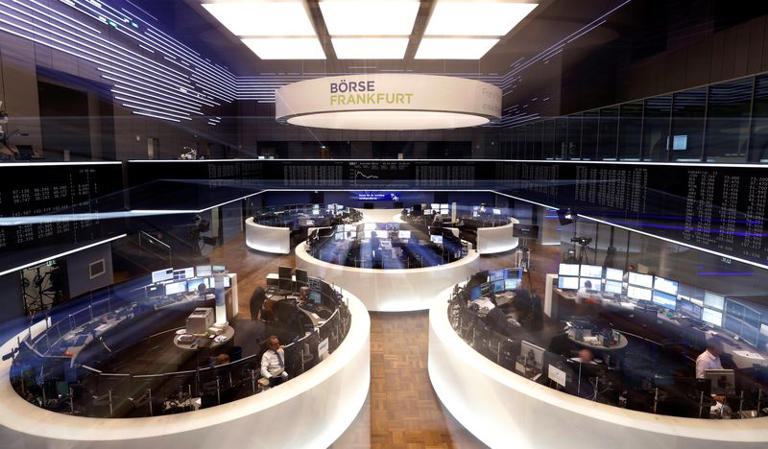In the global financial landscape outlined by Tom Westbrook, the focus is on several critical factors shaping investor sentiment and market dynamics. The ceremonial opening of Britain’s new parliament, presided over by King Charles, serves as a backdrop against which Keir Starmer’s Labour government unveils its agenda aimed at stabilizing the economy amid recent political turmoil. This ceremonial occasion not only marks a formal beginning but also sets expectations for policy initiatives crucial to economic recovery and growth.
Central to market attention is the trajectory of British inflation, a key indicator amid broader global economic trends. Recent data from the United States and Canada showing declines in consumer prices for the first time in years have set a precedent, suggesting potential deflationary pressures that central banks may need to address. In contrast, New Zealand’s inflation, while slowing more than anticipated, reveals underlying pressures driven by domestic factors such as rising rent and construction costs, signaling potential challenges in managing inflation expectations.
In the British context, services inflation remained stubbornly high at 5.7% year-on-year in May, with projections indicating a slight moderation to 5.6% in June. This persistent inflationary pressure underscores the delicate balancing act faced by policymakers as they navigate economic stabilization efforts amidst external uncertainties.
Financial markets are closely monitoring currency movements, with the British pound holding steady near $1.2978, approaching its highest level in a year. This stability comes amid market expectations that the Bank of England may initiate interest rate cuts as early as August, reflecting proactive measures to support economic recovery.
Simultaneously, gold prices have surged to record highs in Asian trading sessions, driven by heightened expectations of global interest rate cuts. This surge in demand for the precious metal underscores investor concerns about economic stability and inflation hedging strategies in uncertain times.
Taiwan’s stock market, however, experienced volatility following comments from former U.S. President Donald Trump questioning American commitments to the island. Trump’s remarks, citing economic competition and the semiconductor sector’s significance, particularly impacted shares of Taiwanese chipmaker TSMC, which declined by 1.4%. This geopolitical uncertainty adds a layer of complexity to market dynamics, influencing investor sentiment and sector-specific investments.
Looking ahead, market movements will pivot around key economic releases, including British and euro zone consumer price indices, alongside corporate earnings reports from major players like Dutch semiconductor giant ASML, U.S. Bancorp, and United Airlines. These earnings updates are pivotal in assessing corporate performance amid economic headwinds and geopolitical uncertainties, shaping investment strategies and market sentiment globally.
Tom Westbrook’s comprehensive overview highlights the intricate interplay between geopolitical developments, economic data releases, and corporate earnings reports, all pivotal in shaping investor sentiment and influencing market movements across global financial hubs.
